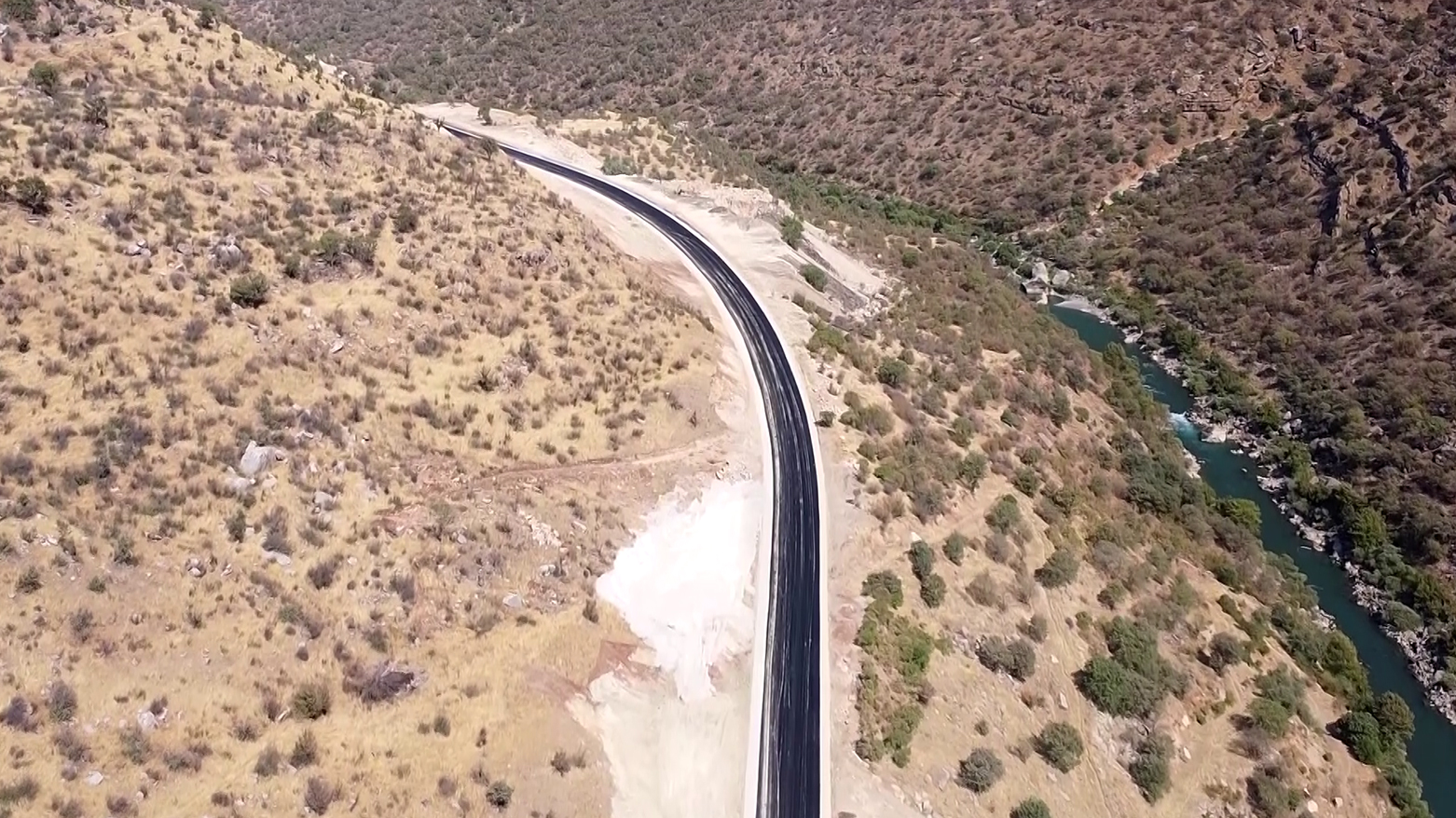New Amedi Road Project Sparks Hope for Repopulation of 100 Evacuated Villages
A strategic KRG road project in Amedi is nearing completion, sparking hope for the repopulation of over 100 villages evacuated for 12 years due to the PKK-Türkiye conflict, and revitalizing the local economy.

ERBIL (Kurdistan24) — A strategic road project winding through the mountains of Amedi district is now in its final stages, bringing with it the long-awaited hope of revival for more than 100 villages that have stood empty for over a decade due to the persistent conflict between Türkiye and the Kurdistan Workers' Party (PKK). The Balinda-Sida road and its associated bridge, a key initiative of the Kurdistan Regional Government's (KRG) ninth cabinet, is being hailed as a lifeline that could finally enable the return of displaced families to their ancestral lands in the 'Nerwa and Rekan' region.
The 12-kilometer road, constructed at a cost of more than 20 billion dinars, is more than just an infrastructure project; for the local population, it represents a pathway back to a life that was forcibly abandoned.
Residents, who have been unable to access their homes and farmlands for nearly 12 years, have expressed immense joy and optimism as the project nears completion. Abdulqadir Siteyi, a local citizen, conveyed this sentiment to Kurdistan24 correspondent, Chakdar Jamal. "We are very happy that the construction of this road coincides with the efforts to announce the peace process. We hope that conflict will end not only here, but throughout all of Kurdistan," he said, noting that after years of feeling displaced, he now feels a "sense of freedom."

Another resident, Azad Oremari, highlighted the project's transformative potential. "We are very happy because for many years we have been in a very difficult situation in this area," he stated. "This road connects several villages. With its opening, people will return to their villages, and it will lead to the revitalization of the economy, agriculture, and livestock farming."

The project, which began in September 2024 and is being implemented by the "Kavin Group" company, has made remarkable progress despite operational challenges.
According to project supervisor Nawroz Mohammed, more than 87% of the work has been completed, with approximately eight of the total 12 kilometers already paved. "Out of the total 12 kilometers, only four kilometers remain, for which most of the work is complete and only the paving is left. We will begin paving that section next week," Mohammed said.
He confidently predicted that the project would be finished well ahead of its official schedule, "in about half the designated time."

This efficiency underscores the KRG's focused effort to deliver on critical infrastructure promises that have profound social and economic implications. Beyond facilitating the return of displaced communities, the new road is expected to have a significant impact on reviving the tourism sector in what is one of the most captivating and scenic regions of Kurdistan.
The Balinda-Sida road is a significant component of the ninth cabinet's ambitious and wide-ranging "Road Revolution," a comprehensive strategy to transform the Kurdistan Region's infrastructure, enhance connectivity, and stimulate economic growth.
This broader initiative has seen the implementation of 1,967 road projects at a total cost of over 1.8 trillion dinars. To date, the ninth cabinet has completed 585 of these projects, resulting in the construction of 1,363 kilometers of new roads and utilizing more than 11 million square meters of asphalt.
These efforts are entirely self-funded through the KRG's internal revenues, a necessity born out of a stark fiscal reality.
According to Agrin Abdullah, the Deputy Minister of Reconstruction and Housing, the Iraqi federal government has not allocated a single dinar for road and bridge projects in the Kurdistan Region since 2014, forcing the KRG to finance its extensive infrastructure development agenda independently.
This commitment to self-reliance has yielded a portfolio of transformative projects across the region.
Key among them are major inter-provincial highways such as the new 86-kilometer Erbil-Duhok road, the strategic Gomaspan-Smaquli dual carriageway connecting Erbil and Sulaimani, and the ambitious 150-meter ring road encircling Erbil.
The government has also focused on critical local and rural projects designed to revitalize communities and support local economies.
In the Garmian Independent Administration, the 24-kilometer Kifri-Qarablagh road is now 85% complete, set to connect over 20 villages and boost the agricultural sector.
In Soran, the construction of a strategic 30-meter highway is not only easing traffic congestion but also laying the groundwork for a new, modern market.
Prime Minister Masrour Barzani has personally championed many of these initiatives, laying the foundation stones for projects like the Sheikhan-Lalish highway, which is vital for the Yezidi community, and the Ba'adre-Etit dual carriageway. During a visit to the Sheikhan region, the Prime Minister described it as a significant hub for "economy, agriculture, tourism, and archaeology" and a "beautiful example of the culture of coexistence in the Kurdistan Region."
The government's infrastructure push has also included a decision to resume work on over 200 long-stalled projects that had been suspended for more than a decade due to financial crises.
This renewed focus on completing legacy projects alongside initiating new ones demonstrates a comprehensive and long-term vision for regional development.
The Balinda-Sida road project, therefore, is not an isolated endeavor but a powerful symbol of this broader strategy. It is a testament to the KRG's dual commitment to large-scale modernization and hyper-local revitalization, aiming to connect major economic hubs while simultaneously breathing life back into the smallest, most remote villages.
For the people of 'Nerwa and Rekan,' the new road is the most tangible sign yet that after years of displacement and uncertainty, the path home may finally be clear.






Kurdistan24's correspondent, Chakdar Jamal, contributed to this report.
